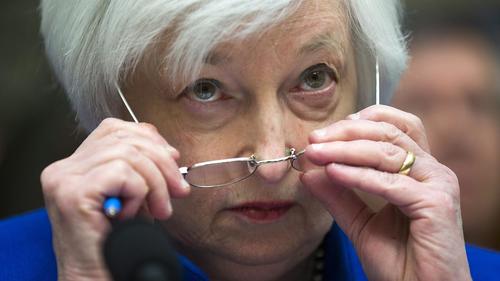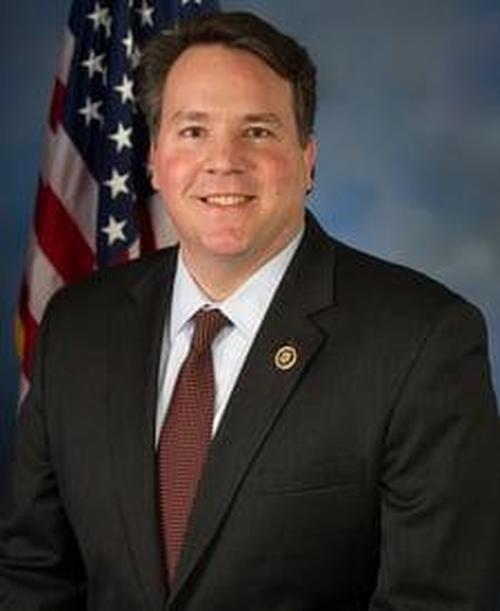“Wholly-Owned Subsidiary Of The Gun Lobby”: Newsom Attacks Federal Judge Who Ruled In Favor Of Gun Rights
Remember when networks and legal experts (correctly) denounced President Donald Trump for his attacks on judges who ruled against him?
Two years ago, I ran a column noting that Democrats were adopting the same attacks on conservative judges but the media was entirely silent.
Now, California Gov. Gavin Newsom and Democrats are lambasting a federal judge who ruled in favor of gun rights in a recent decision — accusing him of being in the pocket of the NRA and a danger to the country. The response to Newsom’s attack from all of those same media and legal experts has ranged from outright support to conspicuous silence.
We recently wrote about the decision of U.S. District Judge Roger Benitez to strike down the ban on “assault weapons.” In Miller v. Bonta, Benitez found that the ban on weapons like the AR-15 are based on both a misunderstanding of the weapons and a misinterpretation of the Constitution. I previously discussed many of the same issues surrounding the AR-15 which remains one of the most popular weapons in the United States
The recent decision led to a barrage of personal attacks from Newsom, state Attorney General Rob Bonta and legal experts. Newsom called Benitez a “stone-cold ideologue” who writes “press releases on behalf of the gun lobby.” He warned that everyone needs to “call this federal judge out” because “he will continue to do damage.”
Benitez has indeed ruled for gun owners in the past. However, he was upheld in that decision (which is still on appeal). In 2017, he struck down the state’s nearly two-decade-old ban on the sales and purchases of magazines holding more than 10 bullets. As recently discussed, the Ninth Circuit upheld his decision, which is now scheduled to be reheard by an 11-member panel. These cases have a very strong chance for review before the Supreme Court given the division across the country and the 6-3 conservative majority on the Court.
One can have good-faith reasons to disagree with both decisions. Indeed, I am all in favor of passionate and pointed analysis of judicial rulings. Moreover, there are occasions where a judge’s personal bias is an issue. Despite previously praising Judge Emmet Sullivan, I wrote columns that later criticized him for what appeared bias in his handling of the Flynn case. This is not such a case. Newsom is attacking this judge because he ruled in favor of gun rights arguments that are supported by many judges, lawyers, and citizens. These arguments have never been rejected by the Supreme Court. Indeed, he was relying on strong case law in favor of the Second Amendment claims raised by the litigants.
It is the strikingly different response to the attacks on the judge that caught my attention. As discussed in the earlier column, legal experts expressed outrage over attacks by Trump of judges as “Obama judges” or “political judges” during his term. There was however no push back on Democratic members denouncing “Trump judges” and “Trump Justices.” Esquire magazine published a column denouncing judges who ruled against ObamaCare, declaring that the Republican arguments “don’t need to make sense. They just need the right judges — and they’re everywhere in the federal judicial system.” One Nation article explained how Trump jurists “swarming our judicial system . . . will linger, like an infected wound poisoning the body politic.” CNN ran headlines about “Republican-appointed judges” supporting the ObamaCare challenge, while Democratic members of Congress denounced federal judges ruling for the Trump administration as examples of why new judges must be appointed by Democrats.
Benitez ruled on arguments that have long been discussed by many of us as raising serious questions over the constitutionality of these laws. Again, one can disagree with the arguments but they are not fringe or fanciful positions. Indeed, Newsom’s demand for an appeal may be great news for the gun rights groups. Liberal states and cities have repeatedly pushed appeals that resulted in magnifying their losses. The District of Columbia is a great example of such poor choices in triggering the decisions in Heller. Later the Supreme Court expanded on its pro-gun rights case law in McDonald v. City of Chicago. The Supreme Court just took up a new major gun rights case out of New York.
Benitez and his family fled communist Cuba and remains a powerful American success story. He was able to get through law school as a first generation American. Benitez was confirmed 98-1 and had the strong support of Sen. Dianne Feinstein and other Democrats. (Only Sen. Dick Durban voted against him). Feinstein rejected the negative review of the ABA based on his “temperament” and noted that her own inquiries found that lawyers “say he is a man of the highest ethical standard, that he has superb demeanor, intelligence, pragmatism, and fairness. And the chief public defender notes that he has good judicial temperament and is courteous to his employees and the attorneys who appear before him.”
Newsom’s attack omits that Benitez was upheld by other judges in his earlier decision. That does not mean that the opinion is manifestly right (Indeed, it is being appealed). However, the opinion advanced well-established arguments and authority in reaching its conclusion. A majority on the Supreme Court would likely agree with much of the opinion. It is not about him. It is about the law. That is why I criticized Trump for his attacks on judges and why we should be equally critical of Newsom and Democratic leaders doing the same thing now.
Tyler Durden
Fri, 06/11/2021 – 19:00
via ZeroHedge News https://ift.tt/3ggzDEp Tyler Durden










